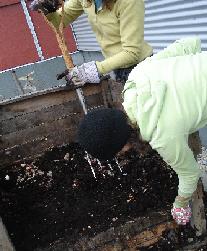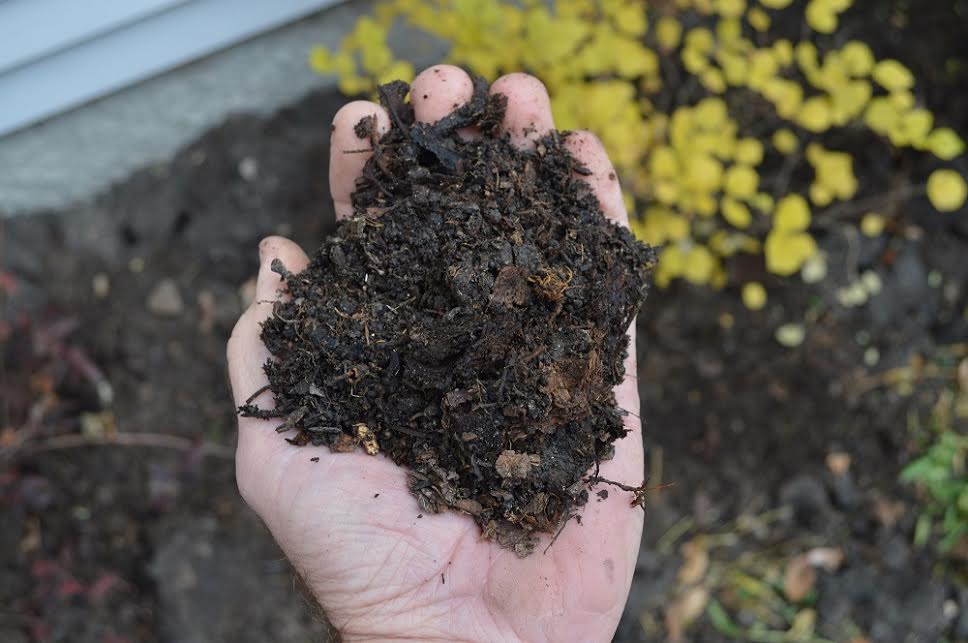 Green Action Centre is often asked if it is better to harvest compost in the Fall or in the Spring.
Green Action Centre is often asked if it is better to harvest compost in the Fall or in the Spring.
Generally we recommend harvesting in the Fall, however there are conflicting opinions on this. According to the Rodale Book of Composting (which is generally considered the composting bible), it is best to add compost in the Spring, approximately one month before planting. There are however several reasons why we don’t necessarily agree:
- Determining whether compost is fully mature can be difficult unless you take a scientific approach and test it. If you place immature compost around your new plants it can rob them of nitrogen and oxygen in order to finish the process. Harvesting in the Fall will ensure that by Spring time your newly added compost is fully mature before you plant.
- Weather in Manitoba makes planting times highly variable and this same weather can make it difficult to ensure that you can harvest your compost early enough. If the pile is wet in the Fall, it may still be partially frozen when you want to harvest in Spring.
Remember finished compost is generally dark brown in colour, has an earthy smell and does not have any visible food waste remaining. If your compost has a sour ammonia or rotten egg/sulphur odour, the composting process is not finished. Another tell tale sign of immature compost is if the pile is still producing heat. If the compost looks and smells good, but has some leaves, twigs or even egg shells, don’t worry, it can still be used. These items will just take more time to slowly breakdown and release nutrients into your soil. You can of course screen these things out if you like. To learn how to harvest your compost check out this link.
Composting at home is not only a great way to help the environment, it also supplies you with a FREE amendment/fertilizer! The finished compost contains a wide variety of minerals and nutrients due to the variety of food scraps and yard trimmings that are added to the bin, so its like a multi-vitamin for your soil.
Many people have already discovered the rewards of backyard composting, and if you are looking to get started or learn more about composting, please visit our program information or call 204-925-3777 for information and advice.
Save




How can I keep mice from nesting in my compost pile? I had dumped grass clippings on my pile and had spread them around but not mixed them in thoroughly and when I returned to do so I found a mouse family nested in the grass clippings.
Hi Will, thanks for your question. The key to preventing mice from nesting or hanging out in your compost pile is to regularly turn or mix your pile. We recommend doing this no more than once a week and no less than once every three weeks. If the compost pile is being regularly disturbed and the pile is moist and hot, mice won’t want to make a home out of it. Make sure you’re also adding browns (eg. dried leaves, shredded paper, straw, sawdust from untreated wood) everytime you add your food scraps (greens), as this helps to balance the pile and prevent it from getting smelly and soggy. If you notice your compost pile is dry, add water and mix it in. I hope this helps!